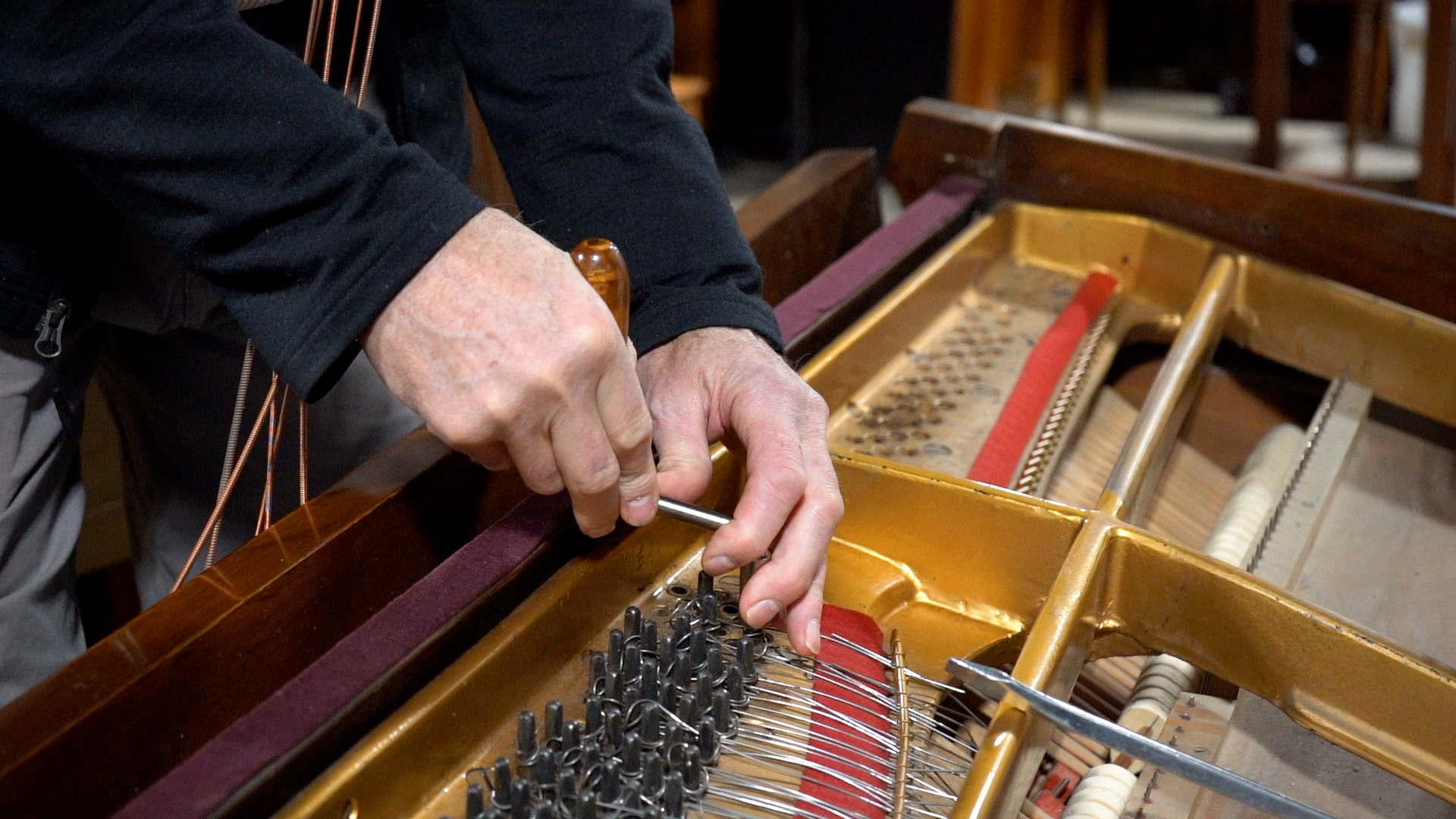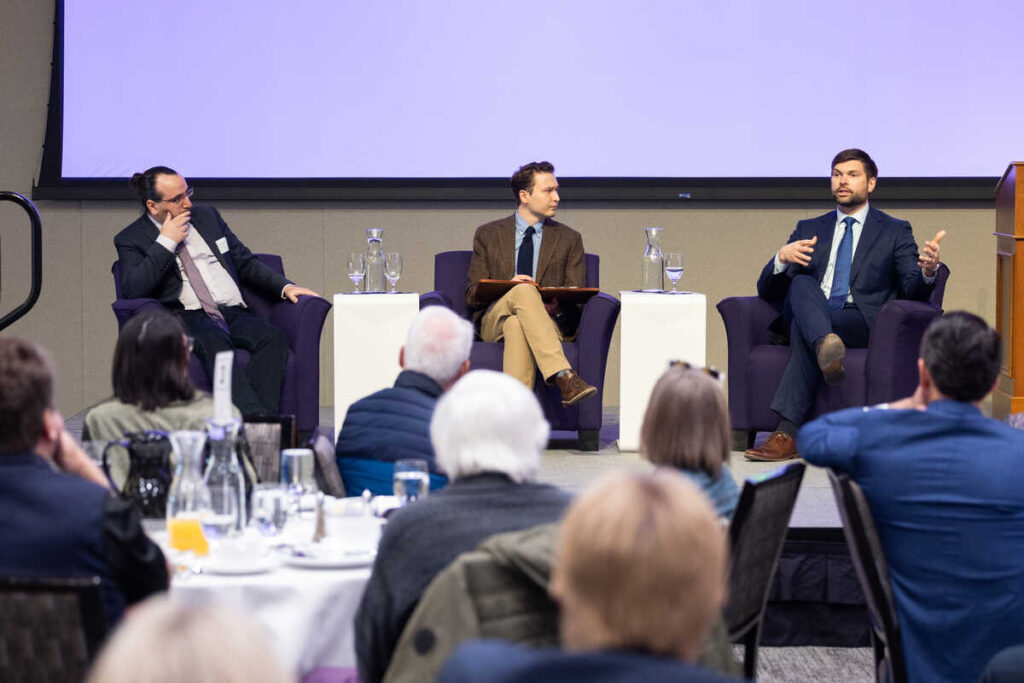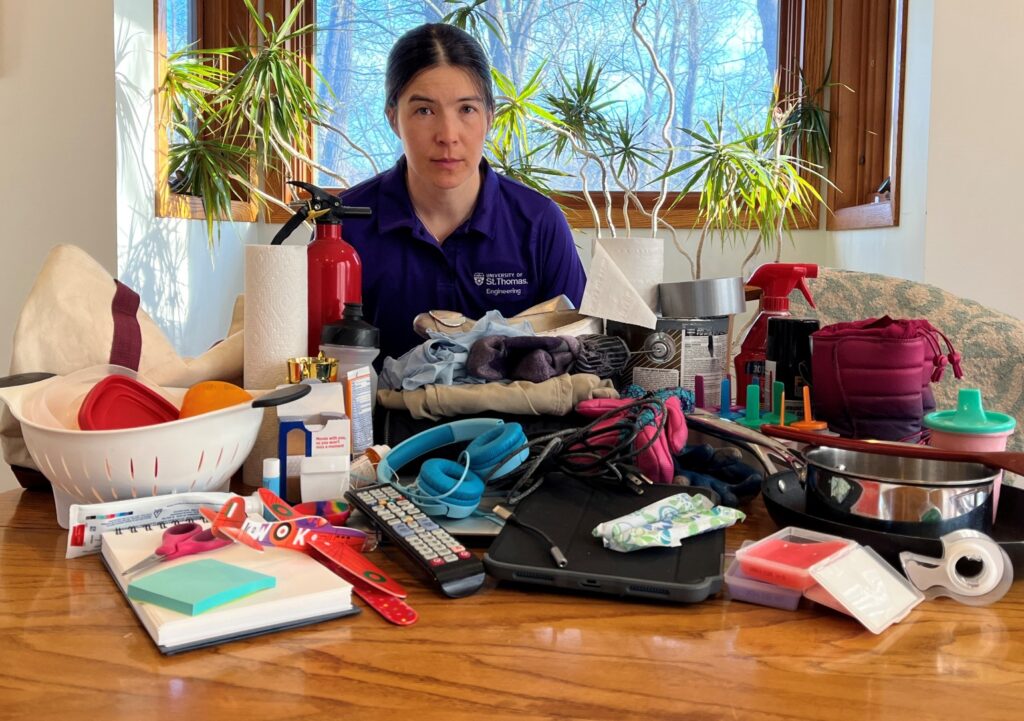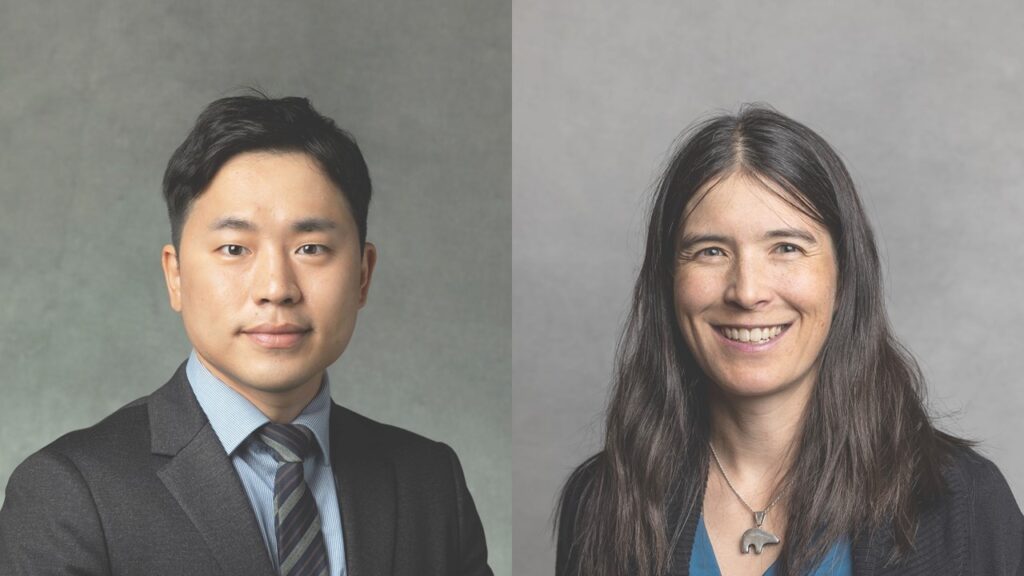It’s a heavy, clunky and often emotional problem: how to dispose of an old piano. Once glorified as a beautifully crafted wooden frame housing musical strings and polished keys, unwanted pianos can often end up neglected and ultimately, in the trash.
To solve that issue, every fall University of St. Thomas students seek sustainable alternatives.
First-year engineering students in Dr. Tiffany Ling’s Introduction to Engineering Design received a unique assignment in fall 2023. Their task: design and build a musical instrument from discarded piano parts.
But they wouldn’t have to build it alone. In a true cross-disciplinary collaboration, students enrolled in Music and the Creative Process, taught by music faculty Dr. Sarah Schmalenberger, served as consultants and were charged with testing out the brand-new instruments. Creating instruments from found materials is something Schmalenberger had previously incorporated into her course, and this allowed that project to expand.
For first-year engineering major Henry Cahoon, who also plays cello at St. Thomas, the project was an exciting chance to combine two of his passions.
“I am a musician and I am an engineer, but rarely do these things connect for me as they did over the course of this project,” Cahoon said. "The fusion of those perspectives was very cool.”
Cahoon’s team designed an instrument out of piano planks, guitar strings and a pair of aluminum soup cans sourced from Dining Services.
“We had a bunch of ideas by the time we got into production, but with a focus on sustainability, we also had to think about how we were going to efficiently use materials … that defined a lot of how our instrument turned out,” Cahoon said.
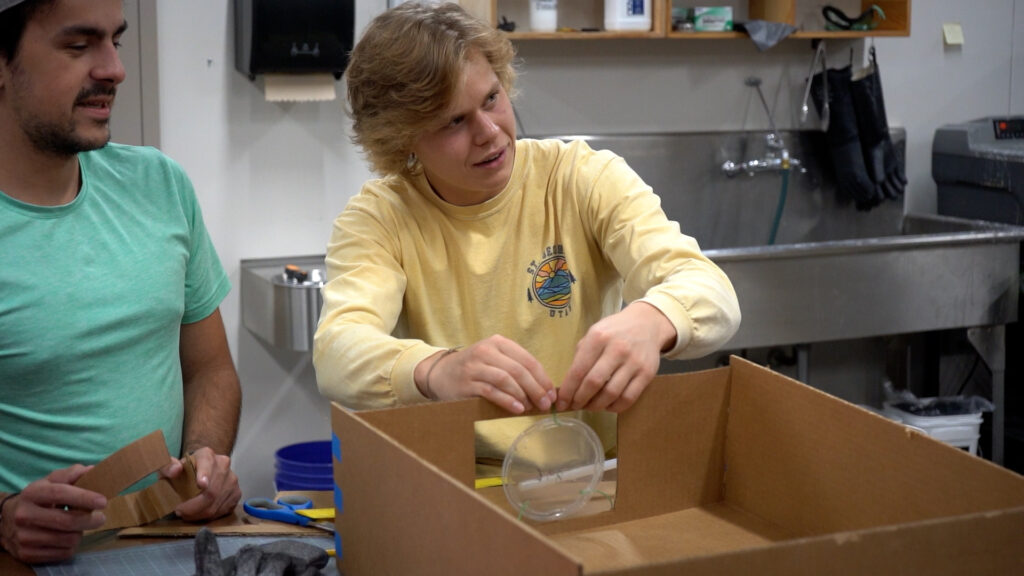
Keys 4/4 Kids in New Brighton, Minnesota inspired the instrument design project at St. Thomas. The nonprofit works to save as many pianos as they can from area landfills and provided students with recycled piano parts to incorporate into their builds.
“It’s been amazing to watch the students create from the early design stages, all the way to the final concert,” Grant Dawson, executive director at Keys 4/4 Kids, said. “These instruments are bizarre, as they’re intended to be new attempts at instrument making. That musical exploration is what this is all about.”
Keys 4/4 Kids takes in nearly 1,000 pianos every year from around the Twin Cities. The organization repairs, resells and gives away as many as they can, but not every piano is destined to be played again.
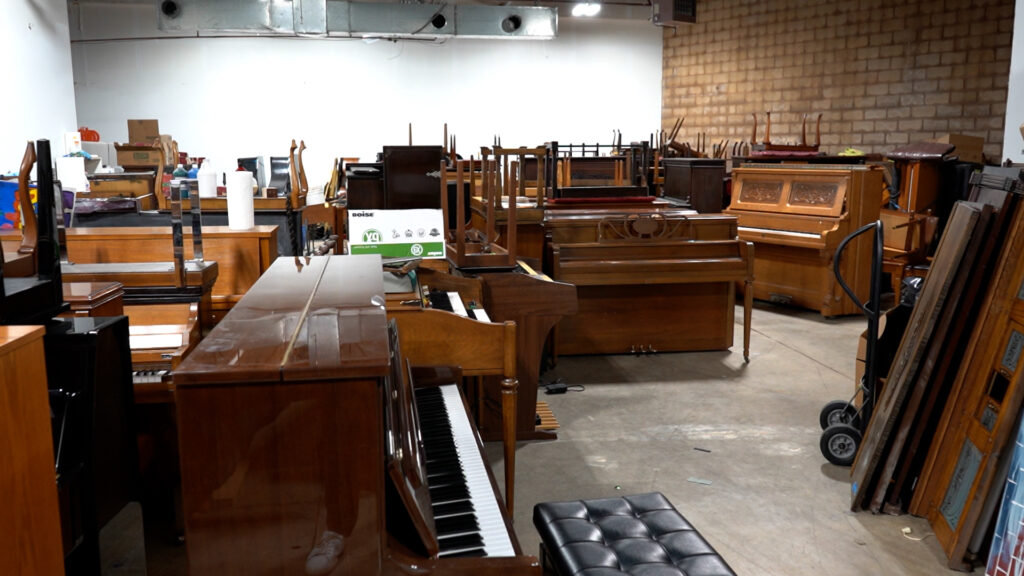
“When a family chooses to give up an instrument that has meant a lot to them over the years, they know that we are sort of the last, best hope for that instrument,” Dawson said. “We either make that instrument sing again … or, if it’s at the end of its musical life, it's going to be as responsibly dealt with as we can.”
As the nonprofit studies new ways to recycle a piano’s many varied and complicated parts, Dawson and his team turned to the Sustainable Communities Partnership (SCP) at St. Thomas to find alternative solutions.
Local governments and nonprofits have relied on SCP to funnel some of its greatest sustainability-minded questions … right into the hands of St. Thomas students. Since its inception in 2016, SCP projects have been incorporated into more than 150 courses across a variety of disciplines, including economics, marketing, and psychology.
“These projects allow our students the opportunity – using the skills they’re developing in class – to solve current questions that our community partners otherwise would not have the capacity to explore on their own,” Office of Sustainability Initiatives & SCP Director Dr. Maria Dahmus said. “Connecting our students with partners expands those possibilities and enriches learning in so many collaborative ways.”
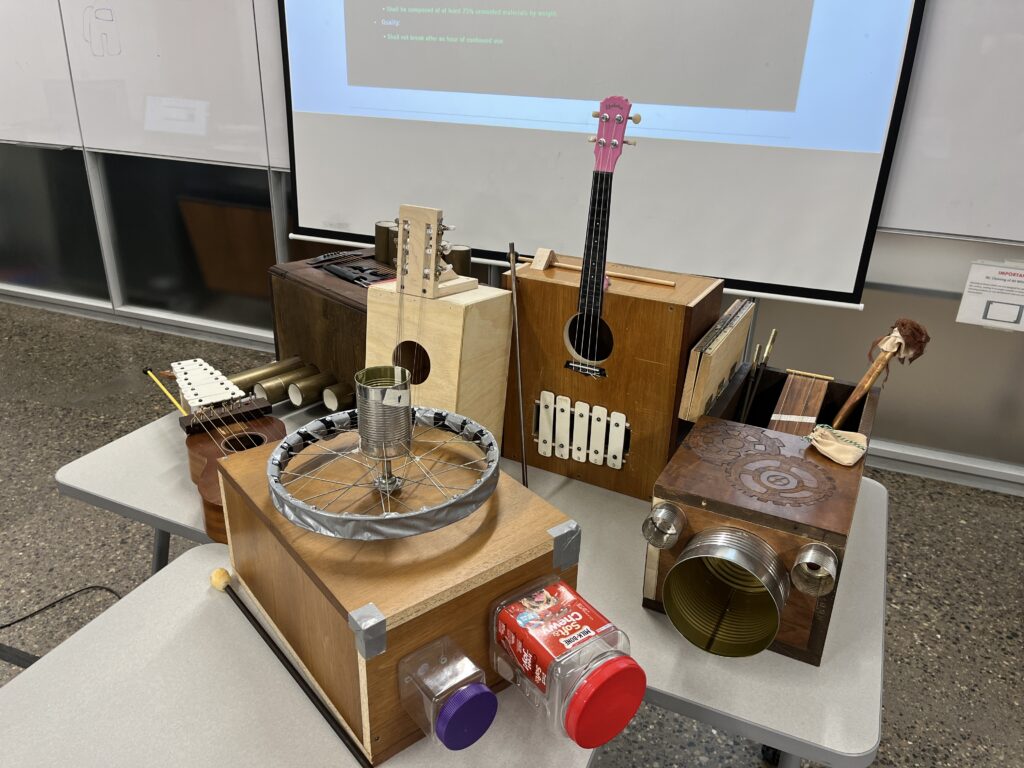
After months of prototyping and testing, University of St. Thomas School of Engineering students handed over their new instruments to music team members to practice on.
Emily Torstenson ’27, a marketing major in the music class, was thrilled with her team’s final design, which featured strings from a piano, keys from a xylophone, and the body of an old ukulele.
“It turned out really well – I love the sound it makes,” Torstenson said. “But also, it’s really cool that we were able to prevent waste with this design, and make something completely new, in a completely different way.”
The project is now in its second year, and plans are already in place to present the challenge to a new group of students in fall 2024.
With each iteration, organizers say, the community gains engineers and musicians better prepared to create a more sustainable world.
“They get to be creative and take something that was once waste, and transform it through their own ideas, into something that brings life and music,” Dahmus said. “I absolutely love this project and what it does for our students.”
